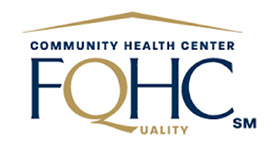AHL in the News, Events, homepage, News, Washington C.H.C, St. Tammany CHC Behavioral Health in Mandeville, St. Tammany CHC Behavioral Health in Slidell, Access Health Louisiana Primary Care at Pythian, Belle Chasse C.H.C, Kenner C.H.C., South Broad C.H.C, St. Bernard C.H.C., St. Charles – Norco C.H.C, St. Charles – Luling C.H.C, St. Tammany – Slidell C.H.C, Tangipahoa C.H.C, Woodworth C.H.C.
JANUARY IS
CERVICAL CANCER AWARENESS MONTH
“The routine cervical screenings changed my life,” says Jasmine, after a test found precancerous cells. She shares her story in this video.
You can lower your risk for cervical cancer by getting screened regularly, starting at age 21.
Screening Tests
The HPV test and the Pap test are screening tests that can help prevent cervical cancer or find it early.
- The human papillomavirus (HPV) test looks for the virus that can cause cell changes on the cervix.
- The Pap test (or Pap smear) looks for precancers, which are cell changes on the cervix that might become cervical cancer if they are not treated appropriately.
Screening Options
If you have a low income or don’t have health insurance, you may qualify for free or low-cost cervical cancer screening through CDC’s National Breast and Cervical Cancer Early Detection Program.
You should start getting Pap tests at age 21. If your Pap test result is normal, your doctor may tell you that you can wait three years until your next Pap test.
If you’re 30 to 65 years old, you have three options. Talk to your doctor about which testing option is right for you.
- An HPV test only. If your result is normal, your doctor may tell you that you can wait five years until your next screening test.
- An HPV test along with the Pap test. If both of your results are normal, your doctor may tell you that you can wait five years until your next screening test.
- A Pap test only. If your result is normal, your doctor may tell you that you can wait three years until your next Pap test.
If you’re older than 65, your doctor may tell you that you don’t need to be screened anymore if you have had normal screening test results for several years and you have not had a cervical precancer in the past, or you have had your cervix removed as part of a total hysterectomy for non-cancerous conditions, like fibroids.
HPV Vaccine
The HPV vaccine protects against the types of HPV that most often cause cervical cancers. HPV can also cause other kinds of cancer in both men and women.
- HPV vaccination is recommended for preteens aged 11 to 12 years, but can be given starting at age 9.
- HPV vaccine also is recommended for everyone through age 26 years, if they are not vaccinated already.
- HPV vaccination is not recommended for everyone older than age 26 years. However, some adults age 27 through 45 years who are not already vaccinated may decide to get the HPV vaccine after speaking with their doctor about their risk for new HPV infections and the possible benefits of vaccination. HPV vaccination in this age range provides less benefit, as more people have already been exposed to HPV.
HPV vaccination prevents new HPV infections, but does not treat existing infections or diseases. This is why the HPV vaccine works best when given before any exposure to HPV. You should get screened for cervical cancer regularly, even if you received an HPV vaccine.






